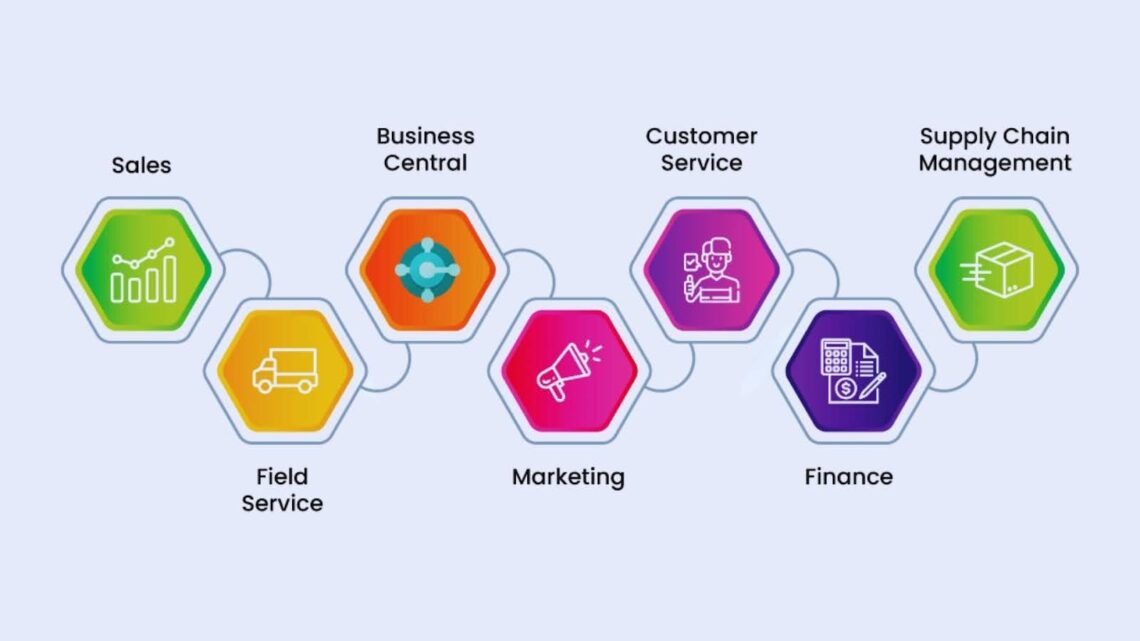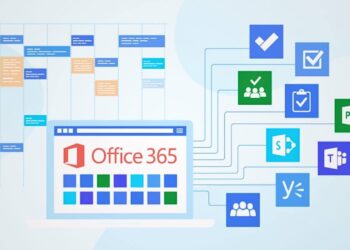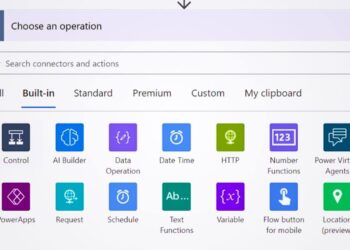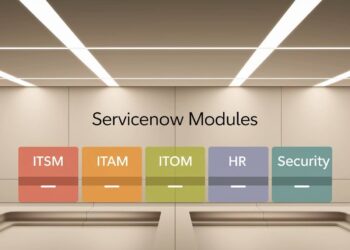After implementing Dynamics 365 solutions for over 200 companies in the past 7 years, I’ve seen firsthand how the right module combination can change everything.
Last month, I helped a manufacturing client reduce their order processing time from 3 days to 2 hours using Sales and Supply Chain Management modules together.
My Microsoft Certified Solutions Expert credentials and hands-on experience with enterprise deployments have taught me which Dynamics 365 modules deliver results versus those that sound good on paper. From small businesses to Fortune 500 companies, I’ve configured systems that solve real business problems.
This guide shares proven insights from actual client implementations, not marketing materials. These tested approaches will help you choose the right modules and avoid costly mistakes that derail projects.
A Quick Breakdown of the Dynamics 365 Ecosystem
Dynamics 365 includes ERP, CRM, AI, and industry-specific modules that can be used alone or in combination with other business tools. Think of it like building blocks, where you can choose exactly which pieces your business needs.
These modules unify data and automate workflows across sales, finance, operations, HR, field service, and more departments. When everything connects properly, your teams stop wasting time on manual data entry and duplicate work.
The modular nature ensures organizations of any size can build a solution to their exact business needs without paying for features they’ll never use.
Key ERP Modules in Dynamics 365
The ERP side of Dynamics 365 modules handles the core business operations that keep your company running smoothly every day.
- Business Central: ERP for SMBs covering finance, sales, inventory, and customer service
- Finance: Enterprise-grade financial planning, compliance, and analytics
- Supply Chain Management: Inventory control, production planning, logistics, and forecasting
- Commerce: Omnichannel retail management for POS and online sales
- Intelligent Order Management: Automates fulfillment and inventory allocation across channels
These modules streamline operations and reduce costs by connecting all your business processes into one coordinated system that works together efficiently.
Top CRM Modules in Dynamics 365
The CRM side of Dynamics 365 modules focuses on managing customer relationships and growing your business through better sales and service processes.
- Sales: AI-powered lead scoring, relationship management, and pipeline tracking
- Customer Service: Case management, self-service portals, and omnichannel support
- Marketing: Campaign automation, segmentation, email workflows, and event planning
- Field Service: Work order management, route optimization, and remote support
CRM modules help personalize customer experiences and increase satisfaction by giving your team complete visibility into every customer interaction and history.
AI-Powered Modules in Dynamics 365
Microsoft has built artificial intelligence directly into Dynamics 365 modules to help businesses make smarter decisions and automate routine tasks.
Customer Insights
Customer Insights creates unified customer profiles with AI-driven segmentation that shows you exactly who your customers are and what they want. No more guessing about customer preferences or behavior patterns.
The module delivers personalized experiences with predictive analytics that help you anticipate customer needs before they even ask. Your marketing and sales teams can focus on the right customers at the right time.
Sales Insights
Sales Insights offers relationship intelligence, conversation analytics, and sales forecasting that takes the guesswork out of sales management. Teams can see which deals are likely to close and which need attention.
The system guides sales reps with AI-driven recommendations about next steps, contact timing, and conversation topics. New salespeople can perform like experienced reps using built-in intelligence.
Finance Insights
Finance Insights uses AI to predict cash flow, automate budgeting, and identify risk before it becomes a problem. CFOs get early warning about potential financial issues.
The module helps finance teams make real-time, data-informed decisions instead of waiting for month-end reports. Budget planning becomes more accurate when based on AI predictions rather than guesswork.
Mixed Reality Modules for Real-Time Business Enablement
Microsoft has added mixed reality capabilities to Dynamics 365 modules for companies that need hands-on training and remote support solutions.
Dynamics 365 Guides
Guides provide augmented reality (AR) for employee training using step-by-step holograms that show workers exactly what to do. Complex procedures become easier to learn and remember.
This approach reduces training time and improves task accuracy by letting people practice in a safe virtual environment. New employees can learn faster, while experienced workers can refresh their skills.
Remote Assist
Remote Assist offers live video guidance for field workers using AR annotations that experts can draw directly onto what the worker sees. Problems get solved faster with less travel.
The system increases first-time fix rates and reduces travel costs by connecting field workers with experts who can see exactly what they see. Complex repairs become manageable with remote guidance.
Product Visualize
Product Visualize displays 3D product models in real environments to improve buyer confidence during sales presentations. Customers can see exactly how products will look in their space.
The module supports mobile devices and HoloLens for immersive sales demos that close more deals. Sales teams can show complex products without carrying physical samples everywhere.
Other Specialized Applications
Microsoft continues expanding Dynamics 365 modules with specialized applications for specific business challenges that don’t fit traditional ERP or CRM categories.
Fraud Protection
Fraud Protection uses AI to prevent payment fraud and chargebacks in e-commerce environments where online transactions need extra security. The system learns from patterns to spot suspicious activity.
This module protects revenue by catching fraudulent transactions before they are processed while minimizing false positives that could annoy legitimate customers. E-commerce businesses see immediate ROI through reduced losses.
Connected Store
Connected Store provides IoT-based analytics for tracking foot traffic, inventory levels, and staffing needs in retail environments. Store managers get real-time insights about operations.
The system helps optimize store layouts, staffing schedules, and inventory placement based on actual customer behavior data. Retail operations become more efficient and profitable with better information.
How to Choose the Right Modules for Your Business
Start with your biggest pain point, such as finance management, customer experience problems, or operations inefficiencies. Focus on solving one major issue before adding more complexity to your system.
Choose only the Dynamics 365 modules you need right now. The platform scales as your business grows, so you can add more capabilities later without disrupting existing workflows.
Consider consulting with a certified Microsoft partner for custom integration work that connects your chosen modules with existing business systems and processes you want to keep.
Conclusion
Microsoft Dynamics 365 offers a flexible suite of modules for every major business function, from basic accounting to advanced AI-powered customer insights.
The modular approach means you only pay for what you use while still gaining integration, automation, and business intelligence capabilities.
Its modular setup eliminates the need for multiple software vendors and reduces the complexity of managing different systems that don’t work together. Teams become more productive when they can access all the information they need from one integrated platform.
From small businesses focused on growth to large enterprises managing complex operations, Dynamics 365 modules provide the foundation for digital change that improves how work gets done. Choose the modules that solve your biggest challenges today and expand as your business evolves.
Frequently Asked Questions
How many modules are in Dynamics 365?
Microsoft offers over 15 core modules, grouped into ERP, CRM, AI, Mixed Reality, and specialized tools for specific industries and business functions.
Which Dynamics 365 module is best?
It depends on your business needs. Sales modules help with growth, Finance handles compliance and planning, while Supply Chain optimizes operations and inventory management.
Are the modules sold separately?
Yes. You can pick only what you need and expand later as your business grows or requirements change, making it cost-effective for companies of any size.
Can I build a custom module in Dynamics 365?
Yes, using Power Platform tools like Power Apps and Power Automate to create custom applications that integrate with existing Dynamics modules and business processes.
What’s the difference between Business Central and Finance?
Business Central serves small and medium businesses with all-in-one ERP functionality, while Finance is designed for large enterprises with complex financial requirements and compliance needs.








